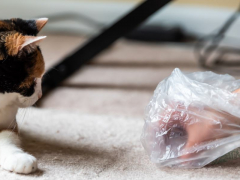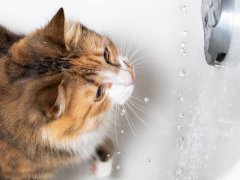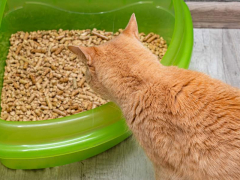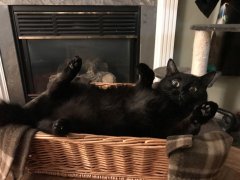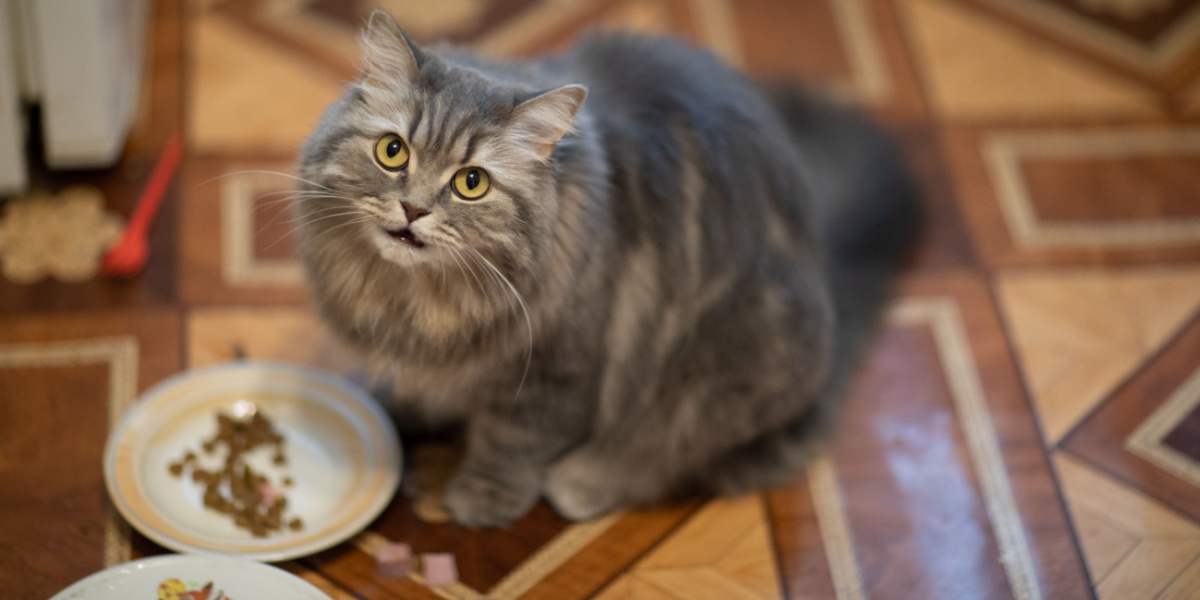
Every cat is different when it comes to their eating habits. Some might lick their bowls clean while others leave some food behind. This can be normal for some cats but it could also indicate a behavioral or medical problem in others. If your cat never finishes their food, read on to find out the possible reasons why.
Feline Eating Habits
Cats eat differently than dogs and other household pets. Cats are grazers and often prefer to eat little and often rather than eating one or two big meals a day. This is because in the wild they would have eaten several small prey animals a day. A cat’s stomach is adjusted to eating small amounts at a time, and domestic cats have inherited this trait, too.
Although some cats might be the exception and eat large portions in one go, most cats prefer to graze. If the food is particularly tasty or treat they might eat more than they usually would. In general feeding your cat small portions throughout the day is ideal.
Cat owners can feed wet food in small portions and leave out a bowl of dry food to allow cats to graze. This is a good option as long as your cat isn’t overweight and likely to gorge on the bowl of dry food.
Wanting to eat smaller portions more frequently throughout the day might explain why your cat is leaving food behind in their bowl, but there are other reasons, too. We’ll discuss these now.
Why Do Cats Never Finish Their Food?
It can be worrying when you see that your cat isn’t finishing their food. Do they like their food? Are they unwell? There are many reasons why a cat doesn’t finish their food; some are harmless and others are more serious reasons. We’ll discuss the causes of this now.
1. Meals Are Too Big
As we’ve mentioned above, cats like to eat little and often. If you’re feeding your cat one or two large portions a day it might be too much for their stomachs. This might explain why your cat isn’t finishing their food and leaves some behind in their bowl. They might not be able to eat large portions of food all at once.
2. Disliking the Food
Another reason to explain why your cat never finishes their food is that they simply don’t like the food. They might have been eating the food type for a while or it could be a new food.
New foods need to be introduced very slowly (over the course of one to two weeks) to encourage cats to accept it. Cats are very particularly eaters and might not eat the food if it’s been introduced quickly.
3. Overfeeding
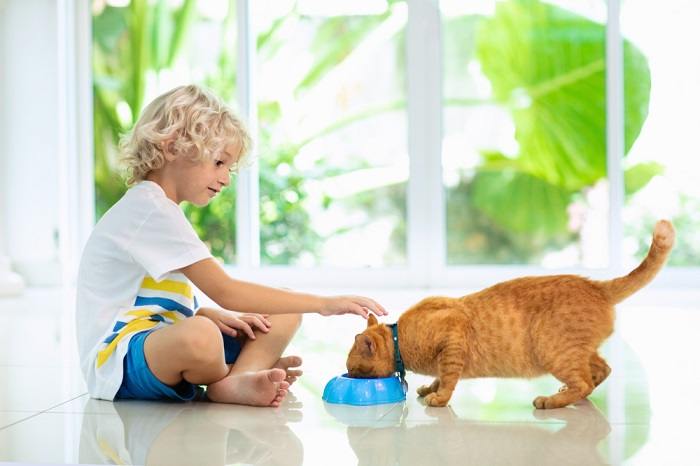
Talk to your vet about how much food your cat should be eating in one day.
A common reason for cats not eating their food is simply that they’re being fed too much. Regardless of whether cats are fed one to two times daily or frequently throughout the day, if the portions are too big they won’t finish the food.
Cats’ stomachs aren’t adapted to eating large amounts of food and they prefer to eat little and often. Having said that, some cats will overeat and finish large portions of food. This isn’t good for cats as overfeeding can lead to obesity. Obesity causes many health problems for our cats including diabetes and mobility issues.
4. Problem With the Food Bowl
If cats don’t like their food bowl, they aren’t likely to spend too much time eating from them. It may cause them to stop eating and leave some food behind. Cats like food bowls that are wide and shallow. This allows them to eat without their sensitive whiskers hitting the sides of the bowl and it also allows them to watch their surroundings while they eat. Some cats prefer ceramic or glass bowls instead of steel as this is reflective.
5. Noisy Environment
The type of food bowl that cats eat from is very important to encourage cats to eat, but the location of this bowl is equally important. Food bowls need to be positioned in quiet areas of the house with low traffic.
They should ideally be away from other pets such as dogs and out of reach of young children. If the food bowls are in areas of the house that are very noisy and busy, cats might be too nervous or uncomfortable to eat their food. This might cause cats to eat less food and leave food behind in their bowls.
6. Eating Elsewhere
If your cat has outdoor access and isn’t eating all of the food you give them, they might be getting fed elsewhere. It’s common for cats with outdoor access to visit different houses and eat treats or scraps that are offered to them. It’s also common for outdoor cats to have multiple different owners without the other owners knowing!
7. Eating Too Many Treats
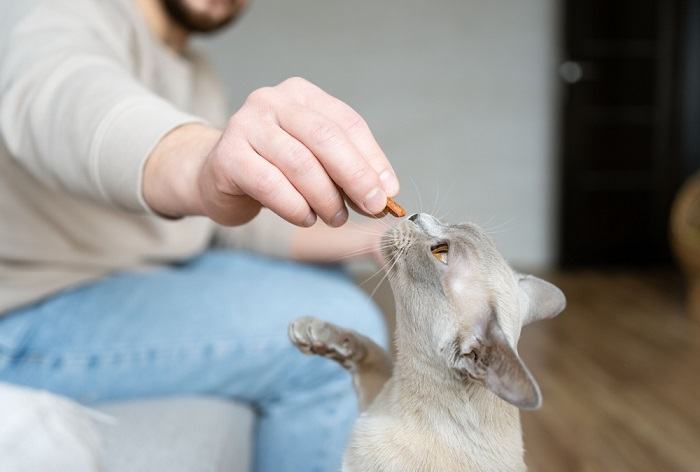
More than a few treats a day can fill your cat up so they aren’t hungry at mealtime.
If we eat too many treats before our dinner, it’s likely that we won’t eat all of it. This is the same for cats. If cats are eating lots of treats and table scraps throughout the day, they might be too full to eat their dinner.
Although treats and human food scraps are small, they can account for a lot of calories and build up throughout the day. Giving too many treats can also lead to overfeeding and obesity if it’s not being monitored.
8. Medical Issues
If your cat isn’t finishing their food, there could be a medical issue causing it. Health issues such as dental disease, inflammatory bowel disease, hairballs, urinary tract disease, chronic kidney disease and many more can all cause reduced appetites (or loss of appetite), which can lead to food being left in the bowl.
Any condition that causes pain or nausea, or alters a cat’s sense of smell will affect their appetite. You might notice other symptoms such as:
- Drinking and urinating more
- Lethargy
- Weight loss
- Vomiting
- Diarrhea
- Changes in behavior
Also Read: 10 Subtle Signs Your Cat May Be Sick
What To Do if Your Cat Doesn’t Finish Their Food
If your cat isn’t finishing their food, it’s best to rule out medical issues as a cause. This is particularly important if it’s a new problem as your cat could be unwell. Your vet will examine your cat and check for any abnormalities. They might recommend further testing if they’re concerned.
Once medical issues have been ruled out, you can focus on other causes. Ensure that your cat has a wide, shallow ceramic or glass food bowl and that it’s in a quiet, low traffic area of the house.
If you’re introducing a new food (wet food or dry kibble) to your cat’s diet, do this slowly over the course of one to two weeks by slowly increasing the amount of new food and reducing the amount of the old food. Feed your cat a high quality, complete food to keep your cat’s health optimum.
Final Thoughts

If your cat is eating but not finishing meals, consider splitting their daily portion into three or four smaller meals fed throughout the day.
Cats are natural grazers and they prefer to eat little and often. It might be normal for them to leave food behind if they’re being fed one to two times a day and if the portions are large. If your cat isn’t eating all of their food, visit your vet to rule out medical issues as cause first.
Ensure that your cat has a wide, shallow food bowl made from ceramic or glass and that it’s in a quiet part of the house. Feed them little and often to mimic how they would have eaten in the wild.
Also Read: The Complete Guide To Feline Nutrition
